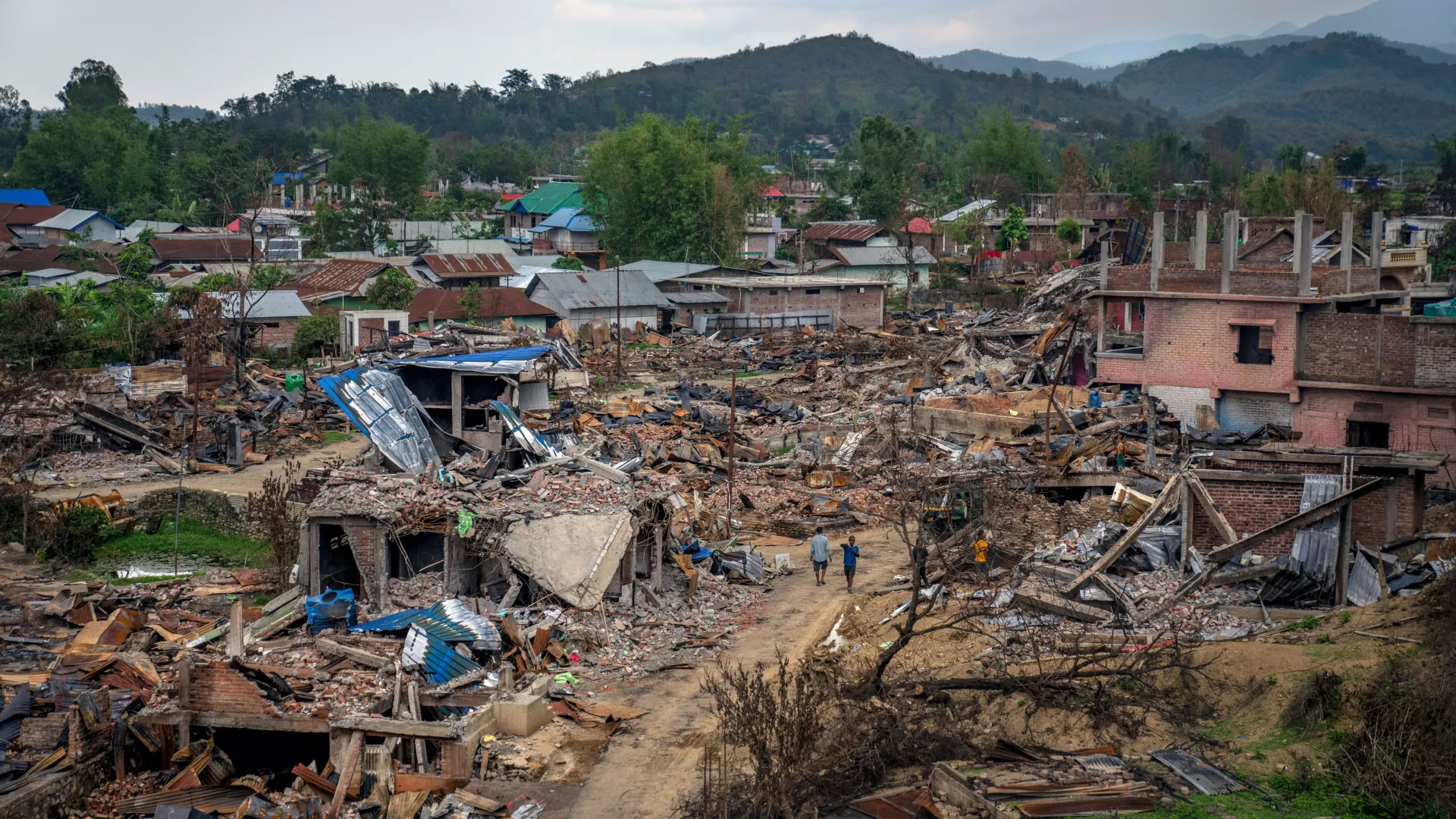
The recent surge of violence in Manipur has shattered hopes of reconciliation and highlighted the need for a political solution. The conflict has brought to the forefront the possibility of either complete separation of the Kuki community from Manipur or granting them substantial autonomy within the state. This sentiment is not exclusive to the Kuki community, as the Meitei community also appears to lean towards this division. The sustained attacks on Kuki regions, regardless of provocation, along with the ongoing stigmatization of the community as illegal immigrants and narco-terrorists, underscore the deepening divide.
The Chief Minister of Manipur, Biren Singh, who is of Meitei ethnicity, played a role in delegitimizing the Kuki community. He often engaged in dispute with Kuki social media users, accusing them of being from Myanmar. These remarks, far from impulsive, shed light on his sentiments towards the Kuki community. He also attributed poppy cultivation and the drug trade to the Kuki community, characterizing the situation as a war against 'narco-terrorists.' Ironically, the former Assistant Superintendent of Police, Thounaojam Brinda, accused Biren Singh of involvement in the drug trade. This paradox raises questions about whether the crisis is engineered to benefit Biren Singh's faction and gain control of the drug trade, among other possibilities.
Biren Singh's involvement extends beyond making damaging claims against the Kuki community; he has been accused of using state machinery to perpetuate violence against them. While this accusation warrants investigation, ground reports suggest that the Manipur police have played a partisan role in the conflict. They have either failed to protect Kuki lives or have been implicated in acts of violence, as alleged in the siege of Khamenlok and other incidents. This has painted the state police as a communal force, emphasizing the need for a political solution.
In typical riot situations, the state intervenes to safeguard citizens and take action against non-state actors, gradually restoring normalcy and confidence among citizens. However, this is not the case in Manipur. The continued violence suggests that citizens lack trust in the state machinery, which is dominated by an ethnic community accused of using state resources against another. Anything short of a political solution is seen as a death sentence for the latter.
Addressing the return of people displaced by violence is crucial. Meitei displaced from the hills should return, just as Kuki individuals who were driven from the valley should be allowed to return. However, recent forced removal of the last remaining Kukis from the valley makes it challenging for Meiteis to return. Even if people are allowed to return home, numerous challenges remain.
One heartbreaking example highlights the plight of a Kuki individual who invested his life savings in buying property in the valley and constructing a house. He lost everything, worth crores of rupees, due to destruction and looting by Meitei miscreants. Similar stories abound among those displaced, whether from the valley or the hills. Ensuring these individuals receive adequate compensation to rebuild their lives remains uncertain.
Considering how the Manipur government, predominantly Meitei-dominated, handles Meitei refugee shelters in the valley, prospects seem bleak. The fear among Kuki about returning to the valley is justified, as the partisan conduct of the government does not inspire confidence.
In summary, both communities, Kuki and Meitei, have made it clear that a political solution is the only viable option. Arguments from the Meitei side against all Kuki don't hold, as the indiscriminate violence counters such claims. The suggestion of an NRC (National Register of Citizens) to identify illegal immigrants raises challenges and questions about the definition of illegality. The state's failure to contain violence, its alleged involvement in exacerbating it, and the inability of the civilian Meitei society to transcend communal divisions make a political solution inevitable. Without it, violence will persist, posing severe security repercussions for the entire region.

Thingkho Le Malcha (TLM) is a traditional method of communication used to send out messages across the Kuki hills during the Anglo-Kuki War,1917-1919... more

If you would like to received a free softcopy of Thingkho le Malcha, you can follow our Whatsapp and Telegram by clicking the below links.
For any other media related you can contact us using below email